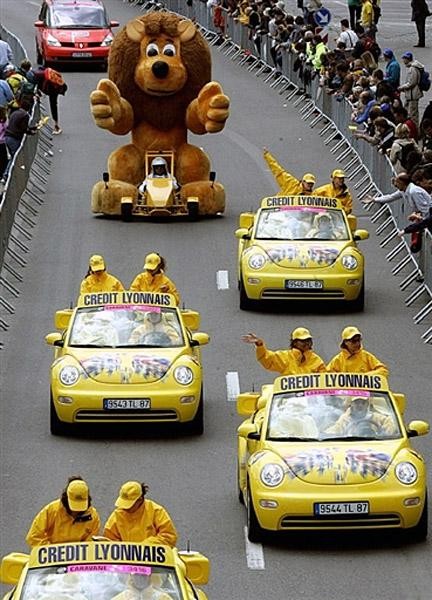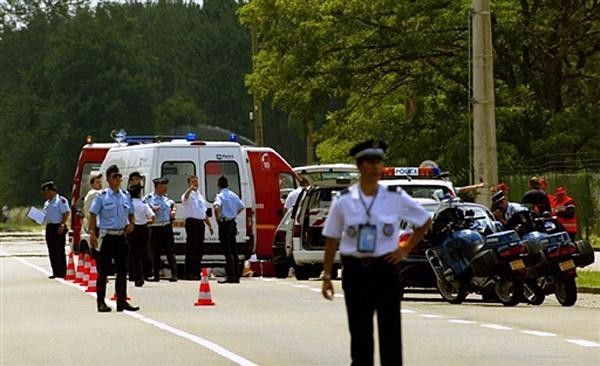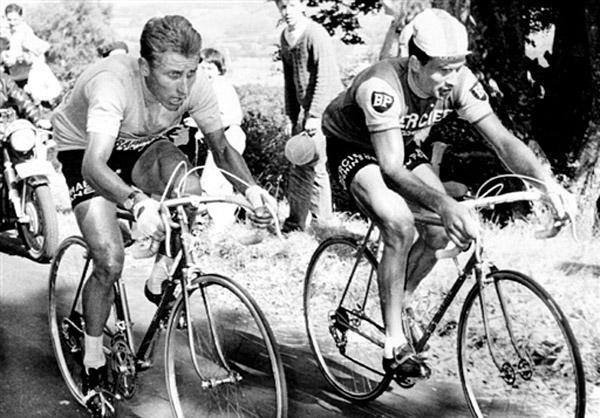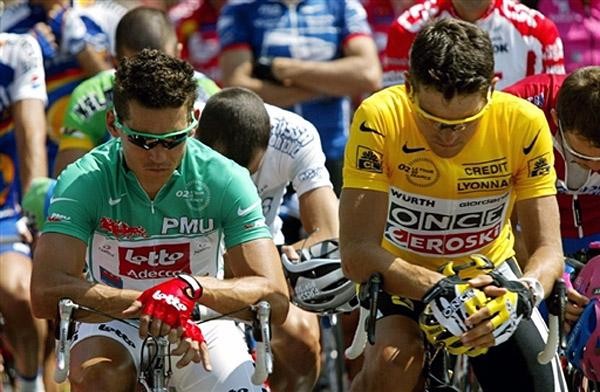Caravan gone wrong
Accidents and even deaths are thankfully rare, but they are far from unknown. One of the worst, of...




Tales from the peloton, July 1, 2007
We all have the dream: to ride the route of the Tour just ahead of the riders. Or at any rate, just before the caravan. It's only when we see what that means, being in the middle of a whirlwind of journalists' cars, television trucks and team buses, that realisation dawns: the roads of the Tour are dangerous long before the racers arrive and it's not for nothing that the gendarmes are severe with bikies who use them. Cyclingnews' Les Woodland recounts the tale of the Tour's most fatal accident.
Accidents and even deaths are thankfully rare, but they are far from unknown. One of the worst, of which little is ever heard nowadays, happened on July 11, 1964. The Tour that summer was leaving the Atlantic port of Bordeaux for a finish in Brive. Ahead of it as usual was the advertising caravan, more entertaining in those days than now, and also a tanker carrying fuel for the cars and motorbikes of the Tour's police force.
It was 1:15pm, relaxed lunches had just been finished and glasses of wine downed. There was a party atmosphere because the Tour was expected in another 15 minutes. A Frenchman was in yellow.
Nobody knows why but the tanker driver took a bend too fast as he approached the river bridge at Port-de-Couze, in the Dordogne. Some say he was confused by the roads, that with so many people waiting to see the Tour he had mistaken the river's towpath for the road that he needed.
Whatever the reason, the tanker swerved too fast to the right towards the crowded bridge despite the frantic waving of other policemen waiting to direct the race. Forty spectators were thrown into the river, some of them struck by the truck, others losing their balance, some simply jumping for their lives.
Eight people died straight away, three later on. Among the victims was a child, whose decapitated head was lifted to the surface by helpers who had dived into the river to rescue the struggling survivors. Thirteen were severly injured.
Get The Leadout Newsletter
The latest race content, interviews, features, reviews and expert buying guides, direct to your inbox!
Ahead of the race and alerted by the primitive Tour radio, Jacques Goddet hurried to the spot. There he waved the riders to a halt. The bunch, not immediately understanding what had happened, looked first puzzled and then shocked. A woman spotting Jacques Anquetil, the hero of France, grasped him by the shoulders of his yellow jersey and begged hysterically, "Jacques, Jacques, do something... my mother is dead!"
Anquetil was so stunned that it took the intervention of another rider, Pierre Everaert, to get him back on his bike. But then, it was an effort for all the riders. They remounted and rode on slowly and silently, horrified by what they'd seen. Six kilometres down the road, a spectator not knowing what had happened assumed that the bunch was taking it easy and spoiling his day.
"Start racing, you slackers!" he yelled. For Everaert it was too much. In those days riders were compelled to carry pumps on their bikes and Everaert stopped and began beating the spectator with his. Anquetil, usually so calm, joined in.
"After what we'd seen, to hear that was intolerable," he said. It took gendarmes and Anquetil's team manager to end the brawl.
In time, of course, the race picked up speed. But the story hadn't ended. The Tour reached Brive in one big bunch, only to crash flat-out in the last kilometre because of a hairpin bend. The journalist Jean Leulliot wrote, "It was the most terrible day in the 24 Tours that I've followed."
The Tour continued. The next day, Anquetil and Raymond Poulidor rode their classic mano-à-mano on the Puy-de-Dôme that could so easily have won Poulidor the Tour. Less publicised, the tanker driver was found not to have been drinking. That at least was in his favour when he appeared in court. There he was found guilty and, the gendarmerie being part of the army, he was arrested by the military police.
There have been more deaths since then on the roads of the Tour - most usually of children stepping into the road or running across it to retrieve things thrown out by the advertising caravan - but never before or since has there been a tragedy of the scale of Port-de-Couze. Thank heavens.